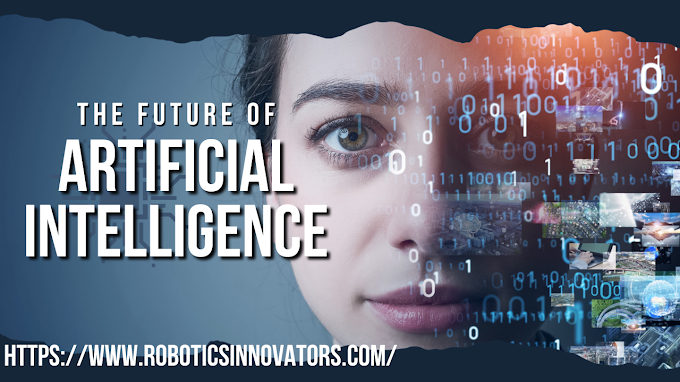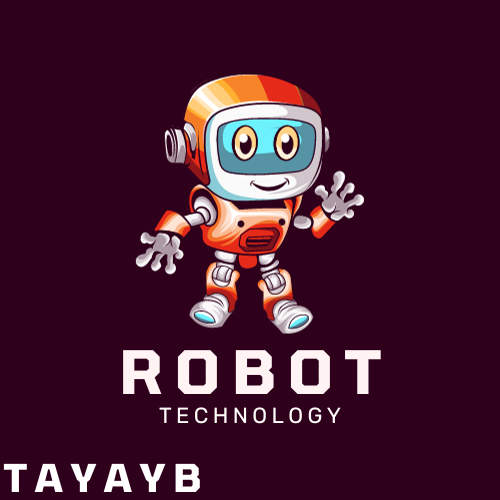Introduction
Human labor is no longer necessary in some areas, thanks to robots. They are chosen above others because of their standardized output quality and quantity, as well as their increased expertise. The use of robots is practical, particularly when the tasks include risks to human life. They are renowned for operating without mistakes. The reliance on human intervention in operations and management is being rapidly replaced by artificial intelligence in the travel and hospitality sectors. There is concern that the excellence that robots display may make human labor obsolete.Robots could erect barriers to entry into the labor market that are too high for competent humans to clear. To provide hotel services, the technology integrates facial recognition technology, robotics, voice technology, and wearable technology.
Due to the nature of the sickness, the hotel and tourism industries were inactive between 2019 and 2020 during the worldwide pandemic COVID-19. The industry relies more on human interaction than on machine use, making it a key area to concentrate on in order to slow the spread of viruses. Outlets chose options after restarting business in the sector, like applying artificial intelligence to hotel operations. Although robots have improved continuous operations and reduced infection rates, there are restrictions on the technology's complete use in hotels.
Numerous studies have been conducted on client happiness, hotel performance, and trends in the transition from wholly human-operated hotels to hotels that are largely or entirely run by robots. The counterargumentative scholars primarily concentrate on staff and management perspectives, as well as consumer preferences. While some management believes that technology's efficiency over human operations is exaggerated, customers still require humans in the sector. Owners are forced to choose between embracing the employment of robots in hotels or rejecting it as a result of these arguments. This research study will review earlier investigations on the efficacy or inefficacy of robots employed in hotel operations, examine why robots are useful or ineffective in comparison to human operations, and finish with a personal interpretation of the findings.
Research Review
The Ultimate Robot, the first robot, was given the job of picking hot metallic items out of a paint pool and stacking them. However, Karel Capek's play "Rossum's Universal Robots" from 1921 was the first to use the word robot. In hotels, robot usage is rather rare. Collier foresaw the automation of services, including hotel services, in 1983. Henn na Hotel in Nagasaki, Japan, the first hotel to employ robots, opened its doors in 2015 and fired half of its robot staff in 2019 as a result of increasing employee workload and client complaints (Ivanov et al., 2020). Despite the latter action, businesses exploited the information they learned from hotels' use of robots to improve the usage of robots in the sector.Another study revealed that customers were okay with robots being used in hotels provided the robots exhibited human characteristics and behaviors, and the customers felt confident that the robots would act appropriately and not put them in danger (Belias & Varelas, 2019). When operational expenses are decreased and output is enhanced, the robots are most effective. The use of artificial intelligence is both liked and disfavored since it lacks many human characteristics. Robots are handy in that they can work continuously without experiencing the same limitations as humans, such as exhaustion and mistakes, yet inconvenient in that they exhibit fewer or no emotions than people.
Today, risky duties may be carried out by robots along with other manageable human jobs. Along with other artificial intelligence technologies, they are employed in hotels to carry out duties including greeting and checking in visitors, monitoring rooms, creating presentations, going over menus, and placing and receiving automated calls. The level of customer acceptance of technology improvements and the hotel's internal capacity to afford and maintain the innovation are said to be the two key driving forces for the adoption of robots in hotels (Stylos et al., 2021). According to a Russian survey, young males who live in towns and typically see employing new technology favorably made up the majority of the consumers who view robot use in hotels favorably.
In terms of how they are seen globally, many customers strongly dislike human-like robots. Accordingly, Yu (2019) found that many guests posting reviews of their hotel stays on YouTube described feeling uneasy, intimidated, and disconnected due to humanoid robots operating on the hotel's property. According to different research by Rosete et al. (2020), "the hospitality industry is therefore considered closely related to empathic intelligence, as the integration of service robots has not yet reached the desired stage of service delivery" (p. 174). This phrase emphasizes that the transition must occur despite several challenges related to the integration of robots into the hospitality sector. Therefore, even if customers choose human staff, the external situation of quick A higher level of client tolerance for change is required due to digitalization and the growing pandemic. It is essential to take into account both the advantages and disadvantages of hospitality automation in order to fully appreciate the effectiveness of robots in the hotel business.
Discussion
Hotel Operations Prefer Robot Service (Main Statement)Employers and industry leaders are expected to adopt new technologies quickly in order to stay competitive and project a professional image. Consumer attitudes concerning robot service at hotels have also evolved during the current worldwide epidemic. The transition is being driven by efficiency, utility, convenience, and simplicity of use. Since robotic services don't entail any human interaction, many customers are interested in them (Grewal et al., 2020). Because robot concierges are simple to use, efficient, and maintain COVID-19 protective social distance measures, consumers are prepared to accept them. However, it is predicted that after the pandemic panic subsides, the unfavorable attitude toward robot service will return.
Consumer views about robot service have also been impacted by advancements in robot anthropomorphism. There is a movement toward favoring robots that are not human-like, notwithstanding previous research showing increased acceptance of robot anthropomorphism (Thomsen, 2020). Consumers are more at ease knowing that robots are not people than they are with robots that act more like humans, according to a study. Because robots are sometimes more effective at providing high-quality services, people's perceptions of reality are being challenged (Lu et al., 2020). Building a mutually beneficial connection with non-humans is challenging for people. Customers find it difficult to trust robots that just mimic human behavior.
They guarantee effective service delivery and are quick and error-free. The robots also save operational expenses by reducing the need for several employees and minimizing waste related to the perishability of food products in the hotel. Through significant profit margins and greater sales, these advantages provide the hotel with a competitive edge that improves its performance. The hotel customers will consistently receive high-quality, uniform service thanks to the robots.
Operational Preferences of Humans in Hotels (Counter-Arguments)
Numerous studies that concluded that robots were useless in hotel operations centered on their lack of social skills and low emotion quotient. Customers want customization in addition to high-quality hotel services, according to a study (Kim et al., 2021). In contrast to a robot programmed to repeat a set of words when a customer performs or says a word or combination of words, a customer will feel more happy if an attendant addresses them by name and perhaps smiles at them. Some hotel managers contend that since robots wouldn't interact with guests individually, the quality of services would suffer. Employees with expertise and good training are less likely to make mistakes in their work.A positive experience is part of quality service. Despite efforts to incorporate customer pleasure into robotic services, their efficacy may never approach that of human service since they are unable to effectively display and manipulate emotions. Human staff services outperformed robotic staff services, claim Chan and Tung (2019), since people foster emotional connections and enhance experiences as opposed to machines.
Robots will help to improve sales now, but human service will bring in repeat customers and recommendations in the long run. The way staff interacts with visitors builds trust between them and the hotel, which makes guests feel at ease returning there in the future (Gupta et al., 2019). Additionally, staff members can affect visitors' feelings to further increase their devotion.
Additionally, staff members may increase customers' loyalty by affecting their feelings through smiles, thoughtful actions, and individualized services. Customers may feel compelled to return to the hotel as a result of these actions because they feel appreciated.
There are a number of shortcomings with human preference. Human personnel may have a detrimental impact on the visitor experience because of how they act and feel. The quality of human services will also inevitably alter every time a given tourist visits. The consequences might range from a terrible client experience to one that is fantastic. All people have faults. Their errors might end up costing the hotel a lot of money or harming its reputation.
Personal Debate
Due to the paucity of customer preference research as well as recent COVID-19-related events, it is still unclear if hotels should switch to robotic service or continue with human operations. When making any company choice, the demands of the customer are always first. A quality of human character is hospitality. Although artificial intelligence has already been utilized by humans, these technologies cannot replace the necessity for interpersonal interaction, particularly in sectors where this factor is crucial, such as the hotel industry (Grundner & Neuhofer, 2021). Humans can only relate to themselves, as seen by the quick shift from acceptance of anthropomorphism in robot service to preference for non-anthropomorphism. Humans are the only species with an emotional touch. Robots are unable to understand human facial emotions, despite the fact that people can read robots' facial expressions due to their inability to reproduce human facial expressions and, hence, emotions (Chuah & Yu, 2021). Because of the limitation, customers could not receive a personalized experience, leaving talks unfinished.Robots are quick, effective, economical, and practical since they are not constrained by human limitations like exhaustion. However, basic necessities like food and shelter must be given in a welcoming setting built on human contact and feelings. Customer loyalty to a hotel is difficult to sustain when robots are handling the services. Customers desire customized service, straightforward communication that involves face-to-face exchanges, and comprehension. Robots are likely to serve more customers who may never come back to the hotel, but human service is likely to gain the patrons' confidence and encourage repeat business.
Robots are likely to draw visitors to a hotel but not keep them there. The opportunity to experiment with service styles will be eagerly anticipated by the visitors. Human personnel can assess a problem and put into practice workable alternatives, in contrast to robots (Jimenez-Ramirez et al., 2019). Robots are likely to respond negatively or indifferently in the event of an uncommon event since the software does not account for the extraordinary occurrence. As there are no qualified workers for the job, it could be necessary to keep the firm operating in the event that the systems fail. In the case of human employees, if there is an emergency, one person is replaced by another. If any system fails, workers may easily switch to operating manually.
Conclusion
In the hotel business, robots have enhanced productivity. They have enhanced production quantity and quality and are rapid, economical, and efficient. Unlike humans, robots can function in challenging environments and don't experience constraints like weariness. Robotics are being used more often in hotel services, and this trend is predicted to continue as technology develops and client attitudes improve. Social engagement during service delivery is not possible with the robotic services available today. Customers have come to value personal service, which includes real emotion and emotional engagement. Consumers are still uninterested in robotic service, despite scientists' attempts to improve robotic look and service to equal human service.After COVID-19, consumers' opinions about robotic hotel services have changed.
Pandemic struck. The establishment of protective measures led to the closure of hotels and entertainment venues, leaving customer requirements unmet. Robot service grew as the epidemic spread since it was the least dangerous way to get goods and things. However, it is predicted that following the pandemic, customers would once again choose human service over robots due to pressure and concern about contracting the disease through human contact.
Human service is seen as sluggish and inaccurate, with different standards, but has the capacity to engage customers and build brand loyalty. Customers are more confident and reaffirm their allegiance to the hotel when they can judge and respond to occurrences. Compared to machines, who do not return visitors, humans do create an impression that will last. Additionally, competent and experienced human workers are less likely to make mistakes and can produce services that are on par with those provided by robots.









.jpg)



